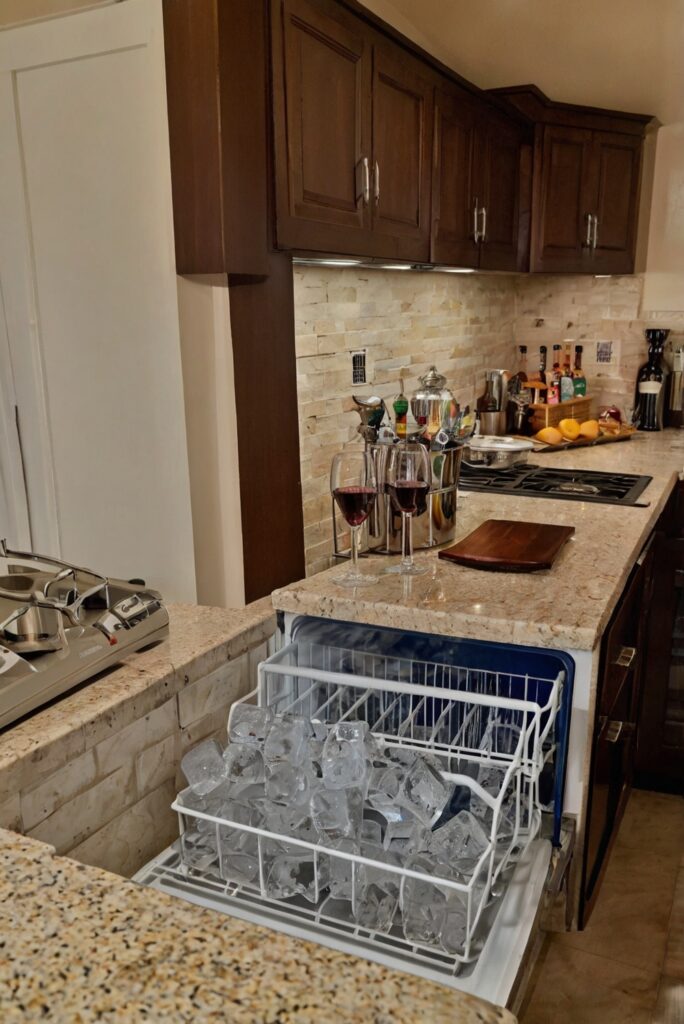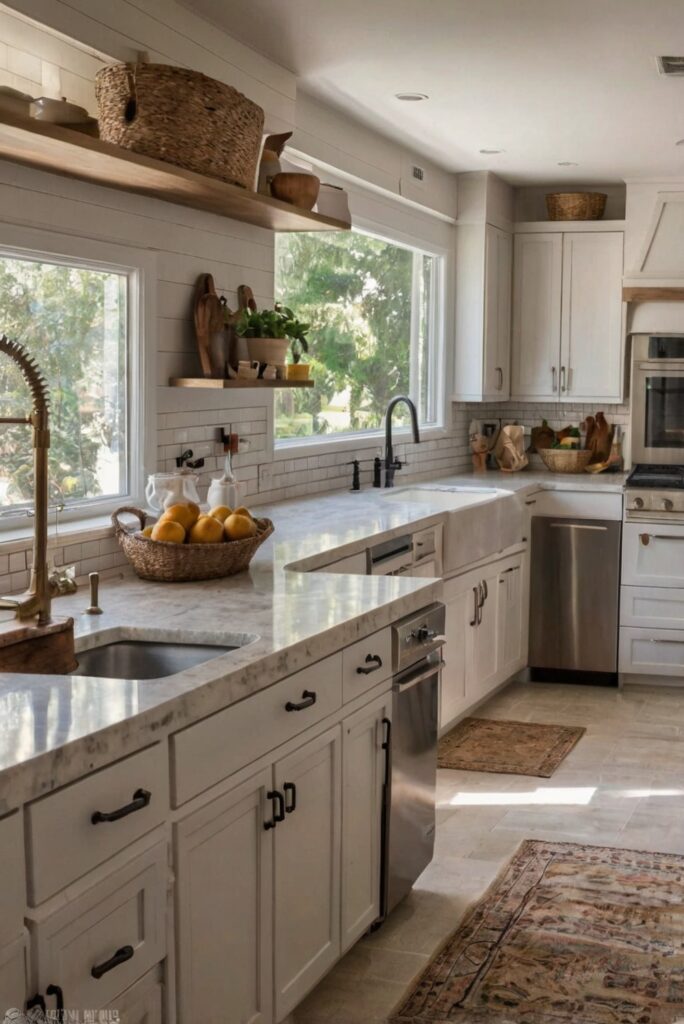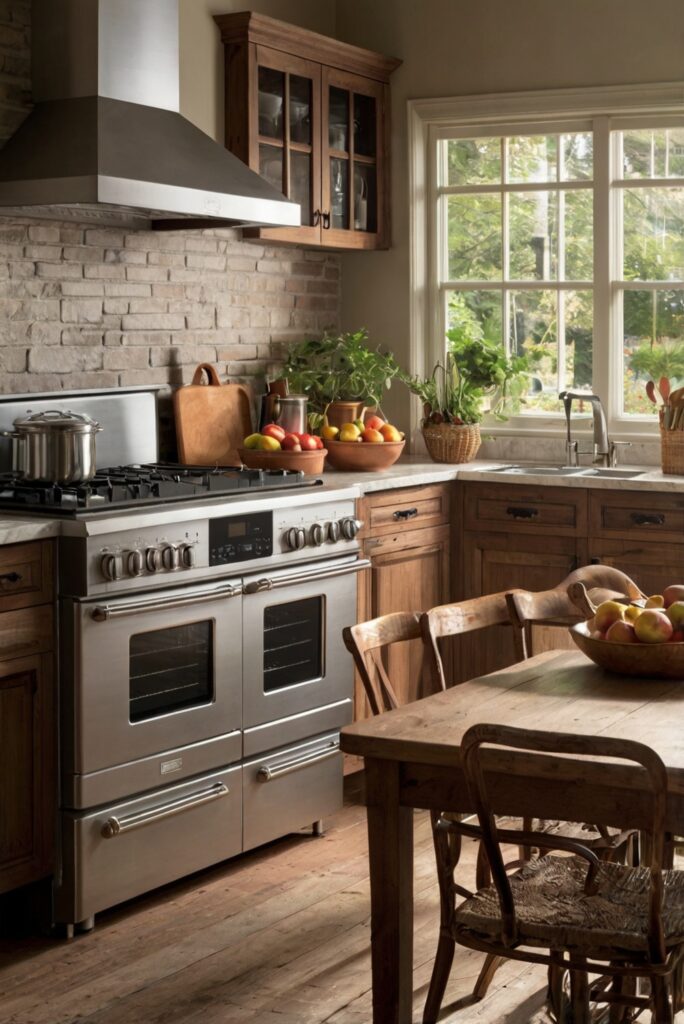Discover the essential steps to choose the perfect ice maker for your kitchen or bar, ensuring your space remains stylish and functionally efficient.
Selecting the right ice maker for your kitchen or bar requires careful consideration to ensure it meets your specific needs. When choosing an ice maker, you should consider factors such as the size of the machine, the type of ice produced, the production capacity, and the installation requirements. For home decorating and interior design, opt for a compact and stylish ice maker that complements your kitchen or bar decor. Ensure the ice maker fits seamlessly into the space available and consider the noise level to avoid disturbances. Additionally, look for energy-efficient models to save on utility bills and consider opting for a reputable brand known for reliability and durability.
When choosing an ice maker for your kitchen or bar, think about the daily ice consumption, the available space for installation, and the desired ice type, whether it’s cubed, crushed, or specialty shapes. Conduct proper research on different models, read reviews from other users, and compare features and prices before making a decision. Don’t forget to consider maintenance requirements and the warranty offered by the manufacturer. By carefully assessing your needs and preferences, you can select the right ice maker that enhances your home interior design and makes your kitchen or bar more functional.
Key Factors to Consider When Choosing an Ice Maker
When selecting an ice maker for your kitchen or bar, there are several key factors to consider to ensure you make the right choice:
1. Type of Ice Needed
Before purchasing an ice maker, consider the type of ice you need for your specific use. Different ice makers produce different types of ice, such as nugget, cube, flake, or gourmet ice. Determine which type of ice best suits your needs and select an ice maker that can produce that type efficiently.
2. Production Capacity
Another crucial factor to consider is the production capacity of the ice maker. Evaluate the amount of ice you will need on a daily basis and choose an ice maker that can meet that demand. It’s essential to select a machine that can produce enough ice to avoid running out during peak hours.
3. Space Availability
Consider the available space in your kitchen or bar where the ice maker will be placed. Measure the dimensions of the space to ensure that the ice maker you choose will fit comfortably. Some ice makers are designed to be compact and space-saving, making them ideal for smaller environments.
Additional Factors to Consider
When selecting an ice maker, you should also consider factors such as energy efficiency, ease of maintenance, and installation requirements. Energy-efficient models can help reduce operating costs, while easy-to-maintain machines will prolong the lifespan of your ice maker. Additionally, some ice makers may require specific installation conditions, so be sure to check the installation requirements before making a purchase.
Conclusion
Choosing the right ice maker for your kitchen or bar is essential to ensure that you have a steady supply of ice to meet your needs. By considering factors such as the type of ice needed, production capacity, space availability, energy efficiency, maintenance, and installation requirements, you can select an ice maker that is well-suited for your specific requirements. Take the time to research and compare different models to find the perfect ice maker that will enhance the efficiency and productivity of your kitchen or bar.
1. What types of ice makers are available for kitchen or bar use?
There are various types of ice makers to choose from, including undercounter, countertop, and freestanding models. Undercounter ice makers are ideal for compact spaces, while countertop ice makers are portable and convenient for smaller kitchens or bars. Freestanding ice makers are larger and can produce a higher volume of ice, making them suitable for commercial use. Consider the size and capacity of the ice maker based on your specific needs and available space.
2. What factors should be considered when selecting an ice maker for a kitchen or bar?
When choosing an ice maker, consider factors such as production capacity, ice type, size, and installation requirements. Determine how much ice your kitchen or bar will need on a daily basis to select an ice maker with the appropriate production capacity. Additionally, consider the type of ice required for your drinks or dishes, such as cube, nugget, or flake ice. Ensure the size and installation requirements of the ice maker are compatible with your space and plumbing/electrical connections.
3. How important is the production capacity of an ice maker for a kitchen or bar?
The production capacity of an ice maker is crucial for a kitchen or bar, as it determines how much ice the machine can produce in a given time period. Consider the peak demand hours in your establishment to select an ice maker with a sufficient production capacity to meet your needs. Underestimating the production capacity can lead to a shortage of ice during busy periods, impacting customer service and satisfaction. It is recommended to choose an ice maker with a production capacity that exceeds your average daily ice consumption to accommodate fluctuations in demand.
4. What are the different types of ice produced by ice makers for kitchens or bars?
Ice makers can produce various types of ice to suit different applications in kitchens or bars. Common types of ice include cube, nugget, flake, and gourmet ice. Cube ice is versatile and commonly used in beverages, while nugget ice is softer and chewable, making it popular in healthcare facilities. Flake ice is ideal for food displays and seafood preservation, while gourmet ice is crystal-clear and perfect for high-end cocktails. Choose the type of ice that best fits your menu offerings and customer preferences.
5. How can energy efficiency impact the selection of an ice maker for a kitchen or bar?
Energy efficiency is an important consideration when selecting an ice maker for a kitchen or bar, as it can impact operating costs and environmental sustainability. Look for ice makers with energy-efficient features such as ENERGY STAR certification, which indicates that the machine meets strict energy efficiency guidelines. Opt for models with advanced insulation, efficient compressors, and programmable settings to reduce energy consumption and save on utility bills. Consider the long-term benefits of investing in an energy-efficient ice maker that can lower operational expenses and minimize environmental impact.



